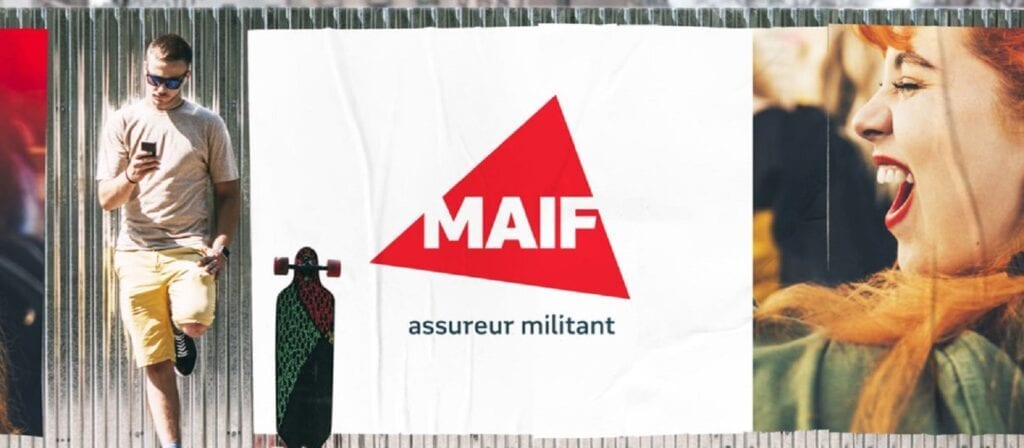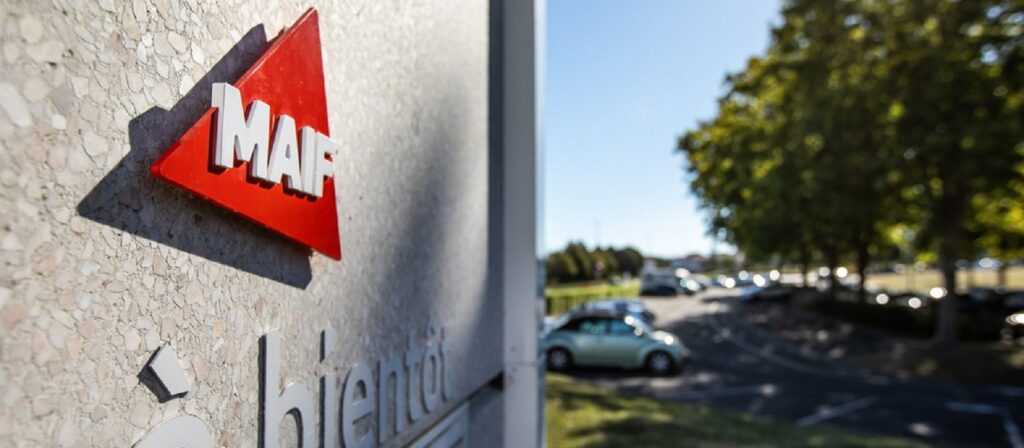Since its inception, French ICMIF member MAIF has been committed to a different vision of insurance. In 2020, it decided to become what is known in France as a “company with a mission” or “mission company” (in French: société à mission). In this guest blog, Franck Carnero, Chief Mission Officer, MAIF and Renaud Huard, Chief Mission Officer, MAIF VIE (MAIF Life) explain why MAIF and MAIF VIE undertook this challenge.
Franck Carnero: Since its creation, MAIF has been a mutual insurance company that is inherently committed to solidarity, equality and education… By becoming a Mission company in 2020, it took another step forward by becoming even more committed and, most importantly, accountable for each of its commitments. This evolution is an obvious one for us in view of our history and our strategic vision, and at the same time it is an important transformation. It places an even greater obligation on us towards our members and policyholders; our internal stakeholders; as well as more globally towards the world around us, while making the benefits of becoming a mission company for our stakeholders the foundation of the company’s long-term economic performance.
And for MAIF VIE?
Renaud Huard: MAIF VIE, a wholly owned subsidiary company of MAIF, became the first life insurance company with a mission in June 2021.
This transformation is a natural part of the MAIF group’s strategic ambition to base its performance on its unique model while considering the specific nature of its various activities.
With the same rationale {« raison d’être »} and the same social and environmental objectives as MAIF, MAIF VIE will implement its own Mission strategy by giving the greatest number of people an offer that aligns the interests of savers with the wider general interest and the common good and gives meaning to their savings.
How does MAIF VIE bring its mission to life as a subsidiary of a Mission company?
Renaud Huard: MAIF VIE has set up a dual “Mission governance”: an internal operational “Mission governance” aimed at coordinating the management of the transformation and the animation of the collective dynamic; and an institutional “Mission governance” to ensure that the MAIF VIE approach is consistent with that of the MAIF Group; to promote the specific characteristics of MAIF VIE; and to drive the work of the Mission committee. Integrated into the existing bodies, the operational governance of the “Mission” is based on coordinated mechanisms between the Chief Mission Officer (CMO), the General Management Committee and the “Mission” team. The next step in our strategy will be to internally promote the daily contribution of our teams to the implementation of the Mission through their activities and our roadmap.
Based on almost two years of experience, what are the elements of a successful transformation?
Franck Carnero: The attention paid to our stakeholders is essential both in the process of building the Mission and in its implementation over time. In addition to the number of people surveyed, which was over 215,000 for MAIF and over 35,000 for MAIF VIE, the diversity of the audience is also a determining factor for our approach: members, policyholders, elected representatives of the members, representatives of the Board of Directors, employees, partners, suppliers, civil society players, etc. All these consultations have created a dynamic, a collective desire and at the same time generated expectations that must be met. As Renaud said earlier, there is a real need to bring the Mission to life daily, both for the internal actors and for the members.
How would you describe the MAIF Mission?
Franck Carneo: The Mission now informs the thinking of all the Group’s businesses. It is a formidable tool for strategic alignment and innovation. We like to compare it to a compass. In concrete terms, the Mission makes us constantly question ourselves in-depth and to apply our imagination the carrying out of our activities to emphasize our unique model in our daily activities. So, for each of our actions and activities, we ask ourselves questions such as:
- Is it genuinely caring towards other people and the world?
- Is it socially just?
- Is it ecologically virtuous?
MAIF VIE unveiled the composition of its Mission Committee last December. What makes it unique?
Renaud Huard: Composed of nine people, of which five are external and four internal, the MAIF VIE mission committee benefits from various types of expertise, all of which complement each other, including: a lawyer; an economist; human resources; and a specialist in sustainable and solidarity finance… We even have a member representing our end “customers”. Together, they embody the Mission in all its societal and environmental dimensions.
The first report of the MAIF mission committee was published in May 2022. What do you learn from it?
Franck Carnero: The exchanges in the Mission Committee discussions are very enriching. The MAIF Mission Committee really plays its role as a “critical friend”. Like the friend who seeks to understand; who asks questions that are sometimes disturbing; and who pushes you to understand a problem from another viewing angle. This first report describes the committee’s understanding of the specificities of the insurance business, as well as its questions and recommendations on MAIF’s priority actions.
What advice would you give to a leader who wants to embark on the path of becoming a Mission company?
Franck Carnero: Be sincere. The system put in place to become a Mission company in France is demanding, the commitments made must be reflected in the company’s strategic thinking and operational implementation.
Faced with increasing environmental and societal issues, more and more people believe that companies and brands have a role to play in social issues. They are increasingly in favor of responsible consumption. When it comes to recruiting talent, there is a real quest for meaning among candidates and they want to make a deliberate choice to put their skills at the service of committed companies. Actions must therefore be aligned with these societal expectations. Another marker is that the commitments and execution of the Mission are monitored and observed by both the Mission Committee and the independent third-party organisation. Their reports are published on the company’s website. There is therefore the risk of loss of image and reputation, including even losing the right to refer to the organisation as a Mission Company, for companies that do not sincerely commit to this approach.
Renaud Huard: Humility. Even if the company is inherently virtuous, it is advisable to adapt what you do and how you do it to further the Mission. The roadmap must be “sized” to the company, based on a realistic number of actions and focus on substance and quality. This allows you to progress reasonably and surely without spreading yourself too thin.
Image: Alex Giraud/MAIF





